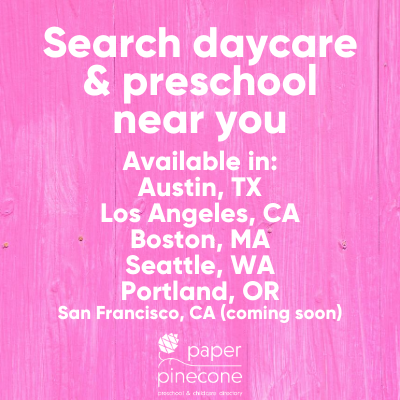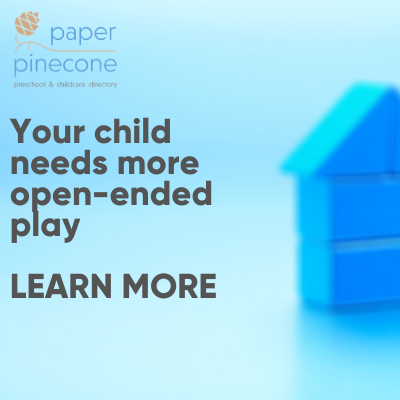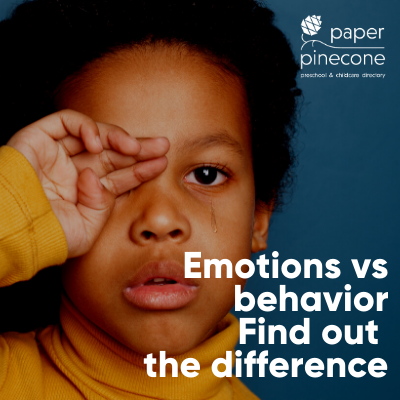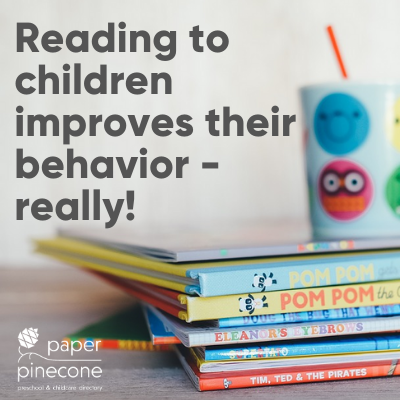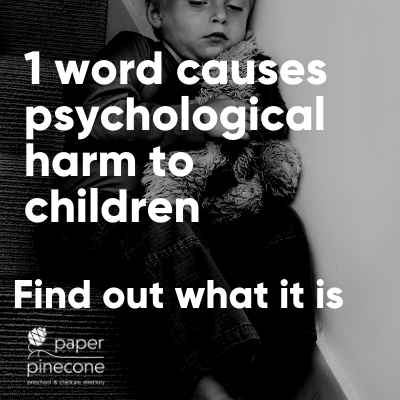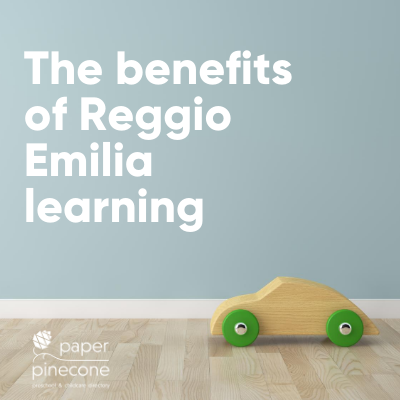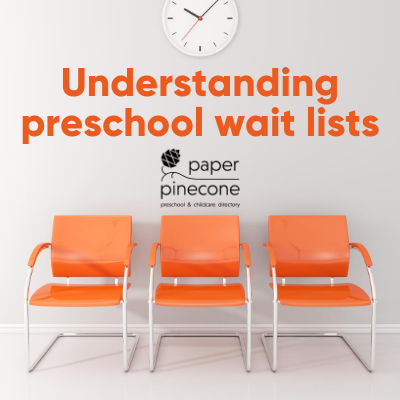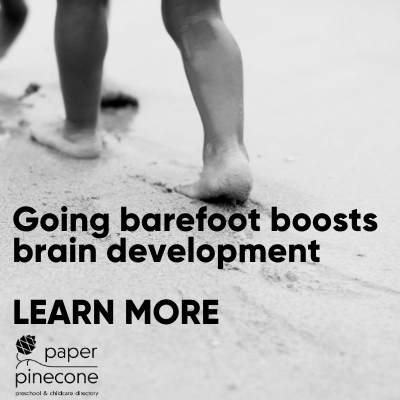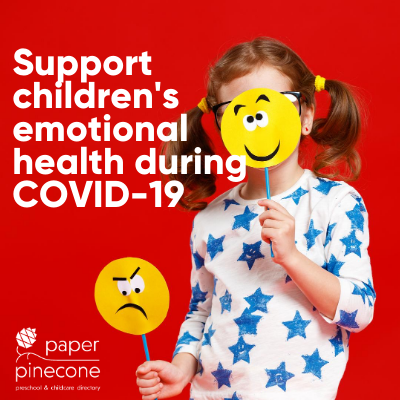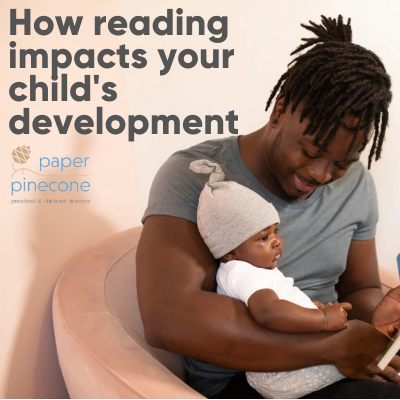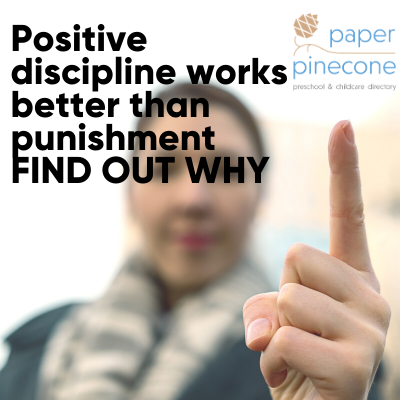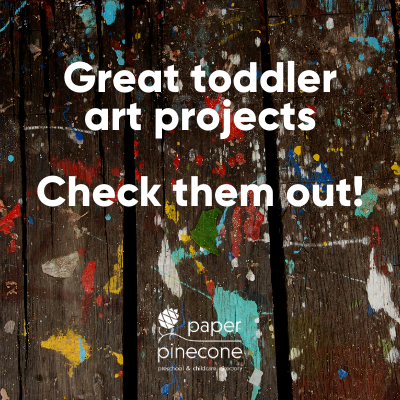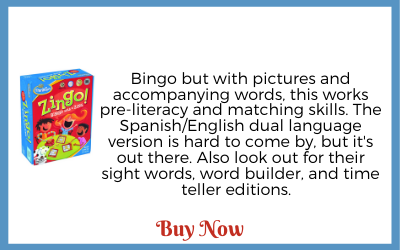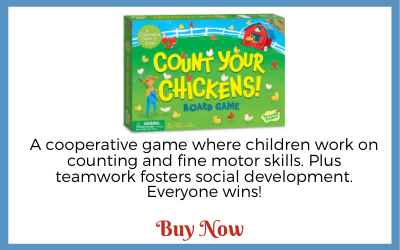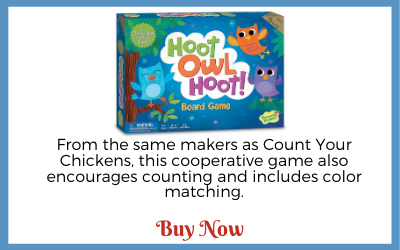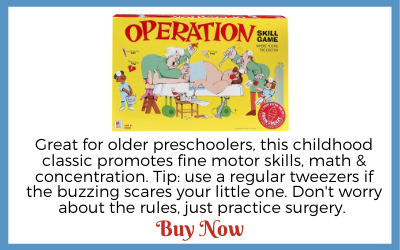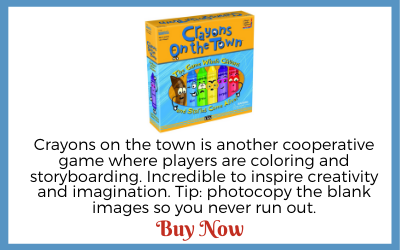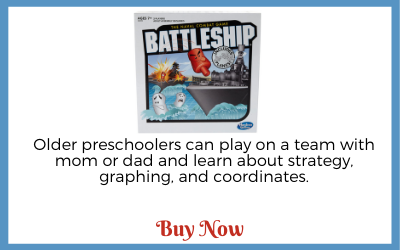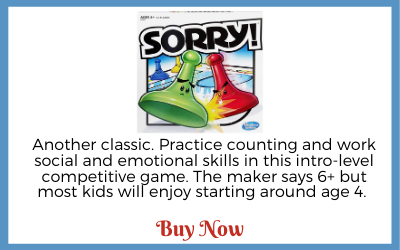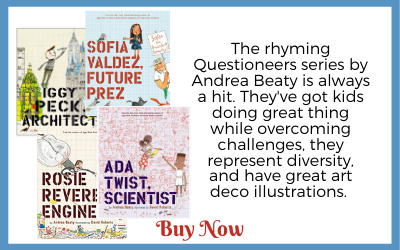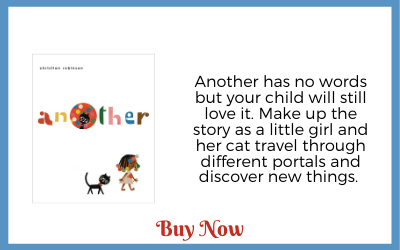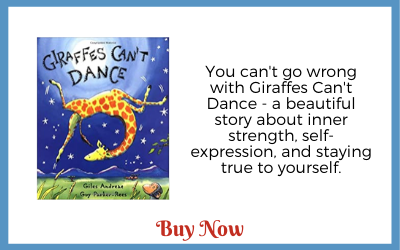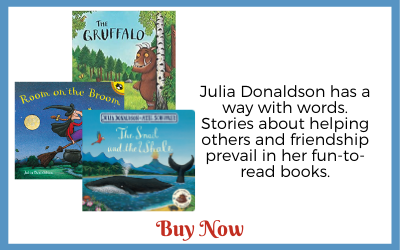Play-Based Learning at Home for Preschoolers - No Projects Needed
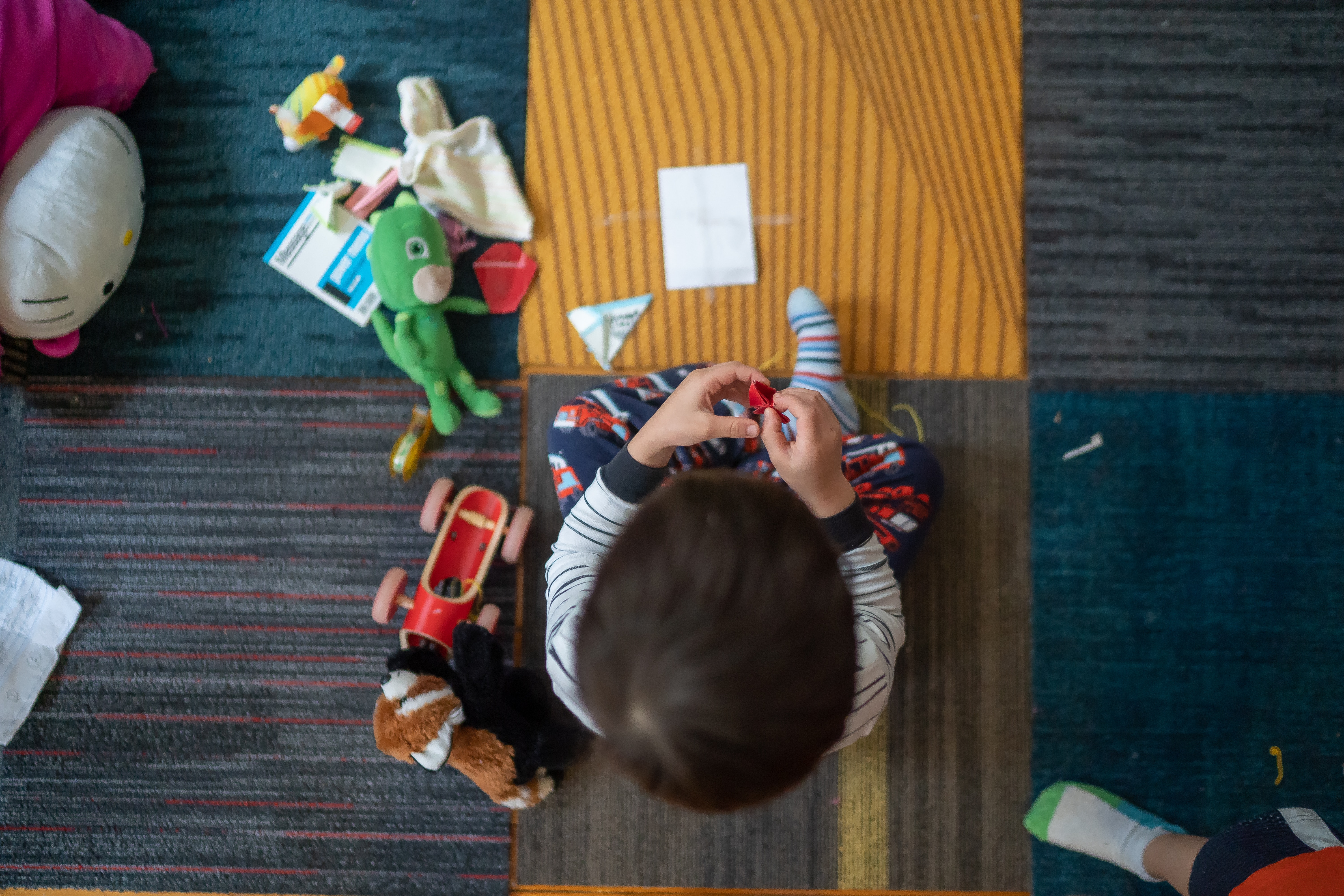
Published Date: 05/16/20
Like many parents, I went from having my almost 5-year-old in a full-day, play-based preschool before the COVID-19 pandemic hit, to having her home with my husband and I as we both try to manage our full-time jobs. I’m not alone when I say keeping a child entertained all day is difficult, even with excessive screen time.
We worry about a lot these days - will she be able to go back to her preschool and get some closure before kindergarten in the fall? Will there be kindergarten in the fall? Will she be scared to go back to school? How will excessive screen time affect her? How is her mental health holding up? What are the long-term ramifications of this quarantine? The questions we ask ourselves are endless, but one question never comes up - what is she learning?
Children are little sponges and it’s impossible to stop them from learning. Study after study supports that children learn best through play - read about what your children learn in play-based preschool here and how it prepares them for kindergarten here.
But, now that your children are home with you because of the COVID-19 outbreak do you have to learn to become a preschool teacher and spend countless hours on Pinterest coming up with projects? Nope. Plenty of everyday activities give children the opportunity to learn and you can facilitate their learning without them even knowing that they’re learning. It all comes down to your perspective and asking the right open-ended questions. Open-ended questions don’t have a yes or no answer so children must process the information and formulate a response.
Adults take for granted so many things that we know. Think about when your child was learning to eat solid foods. You probably watched her or him intentionally throw food on the floor, all the while laughing while you picked it up. Frustrating for you, but your baby was beginning to learn two important concepts - gravity and cause and effect. When you reframe it, a lightbulb goes off in your head. You never think about gravity - you don’t have to (well, I do when I think about what’s happened to my previously perky breasts after nearly four years of nursing, but that’s a whole ‘nother post). The point is, your child isn’t born knowing anything, so they’re learning from everything you do and everything they do. That play-based learning doesn't end in infancy.
Keep in mind that play-based learning can include project-based learning, but it doesn’t have to. Here are specific ways your preschooler can learn with you at home while never putting crayon to a worksheet or looking for a complicated project on the internet.
Board Games & Card Games
When you play board games or card games together, children are learning so many things, including social and emotional skills, and working on those is even more important while children are kept away from friends and can’t socialize during the COVID-19 pandemic.
With cooperative games, children are learning to work as a team and problem solve together. Competitive games teach children to regulate emotions, how it feels to win, how it feels to lose, and gives you an opportunity to teach them how to behave in both circumstances. You can probably beat your child in most board games, but let them win most of the time. Be prepared for them to be a sore loser at first, and think about what you’ll say to them when they lose. Be careful not to use empathy blockers, and always model good behavior when you lose.
Board games and card games also help teach children to take turns and be patient - critical skills to have in kindergarten. Plus, they’re great at helping children learn to follow rules after being told what’s expected of them. Nobody likes to play games with people who don’t follow the rules.
Any game with dice involves counting, moving small pieces requires fine motor skills, sequencing is included (i.e. this first, this next) and many require creativity.
Card games often involve memorization, like with Go Fish, where you have to remember what cards other players have. And of course, with nearly all card games and board games, there’s strategy involved.
Cooking & Baking
Cooking, and especially baking, are the ultimate easy STEM lessons. Fundamentally, ingredients are reacting with each other to make something else. Incorporate learning into kitchen activities with open-ended questions, tasting, and measuring.
For example, when you’re baking, instead of measuring two cups of flour, use half cups. How many half cups to make a whole? How many whole cups to make two? Use a kitchen scale to weigh ingredients before mixing them - how much does that cup of flour weigh in ounces? What about in grams? Talk about what happens when you mix the ingredients. If you’re using yeast (if you can even get yeast these days), check on the dough every few minutes and watch it rise gradually. When making dough, ask your child to describe what it feels like. Does the dough roll out easily or does it snap back like a rubber band? Why does your child think that happens? What is happening to the ingredients when they’re in the oven? Why do you need to preheat the oven? It’s okay if they don’t get the answer right and it’s okay if you don’t even know the answer. Simply asking the questions requires children to think critically.
When you’re cooking together, try raw ingredients and make note of what they taste like. The strong taste of raw garlic or raw onion changes dramatically once cooked. Roasted veggies get sweeter. Dried herbs mellow. When you sit down to eat what you’ve cooked, can they taste the individual ingredients or only how it comes together as a whole?
Use this opportunity to work on fine motor skills when you cook and bake together. Let them measure, stir, and practice cutting.
Also, following a recipe helps children make the connection between the written word and the action you’re taking and help kids follow directions. And of course you can practice reading the recipe together.
Puzzles
Puzzles by definition are opportunities to solve problems, so of course, those skills are honed. But beyond the obvious, there are many things children learn through puzzles. Children are constantly knocking into things, running through things instead of around, and generally, they’re not paying attention, right? Not exactly. Children aren’t born with excellent spatial relation skills, they need to develop them, and puzzles are a great way to do that. They also work fine motor skills, hand-eye coordination, attention span and focus, and give children a huge sense of accomplishment when they complete it.
Boost learning opportunities further when doing puzzles with your preschooler by asking them to sort the pieces first. Separate the edge pieces from the middle, then sort by color.
Reading & writing opportunities
While it’s true expectations of kindergarteners have changed over the years, learning to read is a milestone all children will hit at different times and at this age, please don’t stress about it. Your child will learn at her or his own pace and absolutely will learn. We’ve reviewed dozens of kindergarten report cards and they all have a strong focus on social and emotional skills because without them, children cannot learn in a group setting.
That said, working on preliteracy skills and literacy skills is important and fun. Reading to your children is the obvious way of working on these skills, but while you’re reading, talk about the book. Ask why a character feels the way she or he does, and talk about the words in the book. Talk about alliterations and onomatopoeias. Talk about different phonetic concepts - how i-n-g always sounds the same, that ph sounds like f along, and other letter combinations, and reading context, like when bow sounds like a bow in your hair and when it sounds like an actor taking a bow. Ask questions about the book once it’s done to help with reading comprehension and about the book’s illustrations. What do you think they used to draw the pictures? Are the colors bright or dull? How do they make you feel? Talk about soft cover books versus hard cover, different types of binding, and the way different book pages feel. The objective isn’t to have your child memorize book binding techniques, but to think about how things are made and be forever curious.
Recently, while reading together, I asked my daughter if she knew what the spine of the book was called. She didn't, and when I told her, I said that she has a spine too. That lead down a path of talking about animals and from there, vertebrates vs invertebrates. We veered off our reading course for ten minutes, but that's okay. It introduced her to a new concept and got her thinking about the purpose of a backbone in different contexts.
If your child says, “Just read the story,” and doesn't want to talk about things some days, respect that and just read. Reading to children is the one of the most important factors in predicting future literacy skills.
Other than reading, create opportunities to flex literacy muscles. In my house we have a tabletop magnetic easel with children’s magnetic poetry and we practice reading words and making sentences. The key is we do it on her terms - it’s never forced and when she’s done, we move on and do something else. There’s never a required amount of time to spend on an activity.
Of course your child needs opportunities to practice writing as well, and this can also be done as play-based learning. Have materials easily accessible for her or him without having to ask. Keep a variety of writing instruments - pencils, pens, markers, and crayons around. Children need to develop their hand strength and coordination and different writing tools require different amounts of strength - makers are easier than pens, for example. Give them chances to write where writing is communication, not just handwriting and letter practice. Play restaurant and have your child write down your order or play supermarket and have your child write a grocery list. Making cards to send to friends and family is also a great way to have your child practice writing without making work out of it. Walk around your neighborhood and leave notes outside neighbors’ houses in sidewalk chalk. Long-term, the objective is to teach children how to communicate through writing, not just learn penmanship, and these play-based activities help make that connection.
Other fun ways of learning
Teach your child what a hypothesis is and then set up unscientific scientific experiments. Gather balls and drop two at a time from the same height and ask your child hypothesize as to which will bounce higher and why. Or, grab a ball and another object that won’t break when you drop it and guess which will hit the ground first, and why.
Find opportunities to work on skills with things you may already have around the house. Does your bathroom scale have pounds and kilograms? Weigh your child in both. Measure her or him in centimeters and inches. How much taller are you than her or him?
Ladder toss works both hand-eye coordination and math skills. Blowing bubbles can be scientific when you talk about why some are big and some are small and why some become double or triple, or more. Why don’t they pop when they combine? Again, you don’t have to know all the answers, you’re teaching your child to think critically rather than memorize facts. You can even keep a list of the answers you don’t know and then look them up together later - this starts to teach your child about research and investigation.
If possible, give your preschooler the job of getting the mail for you and then read who it’s from together. Your child will be so excited to have such an important responsibility, especially if you can send her or him to the mailbox alone.
Play charades! To help facilitate it, just make cards that have pictures of animals, foods, and other inanimate objects that your child can act out. Be sure to put the word under the image so your child gets to practice sight words as well. Now you’re fostering creativity and literacy.
Dramatic play is incredible for the imagination and is easy at home. No need to invest in costumes, just pop over to a secondhand store and pick up clothes a few sizes too big.
The reality is that you likely don’t have to look far to create play-based learning opportunities at home for your preschooler. The everyday things that you do can provide endless chances to dig deeper and inspire curiosity. You might not know any adults who can’t read or write, but you most certainly have encountered adults who lack critical thinking and problem solving skills - work to lay the foundation for those now. Having those skills will not only set your child up for success in kindergarten, but for success in life.
Some of our favorite books and games are below. Check them out and send us your favorites! And download this chart of open-ended questions you can use to facilitate play-based learning at home.
Paper Pinecone is the leading childcare resource giving you access to the best preschools, daycares, before/after school programs, pods and tutors. Parents always search free and childcare providers always list free. Send inquiries about daycare, preschool, pandemic pods, and microschools to [email protected].
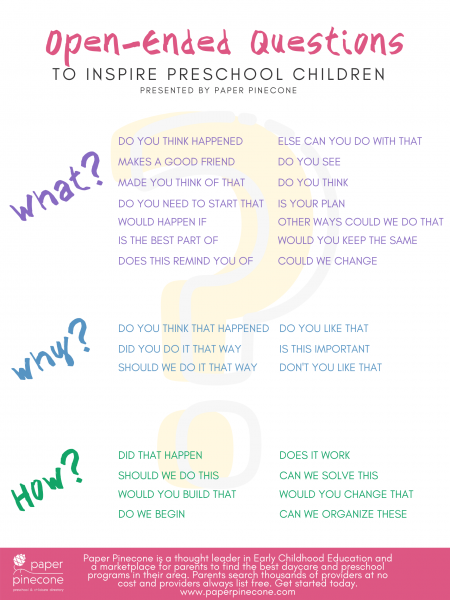
- stacey's blog
- Log in or register to post comments
